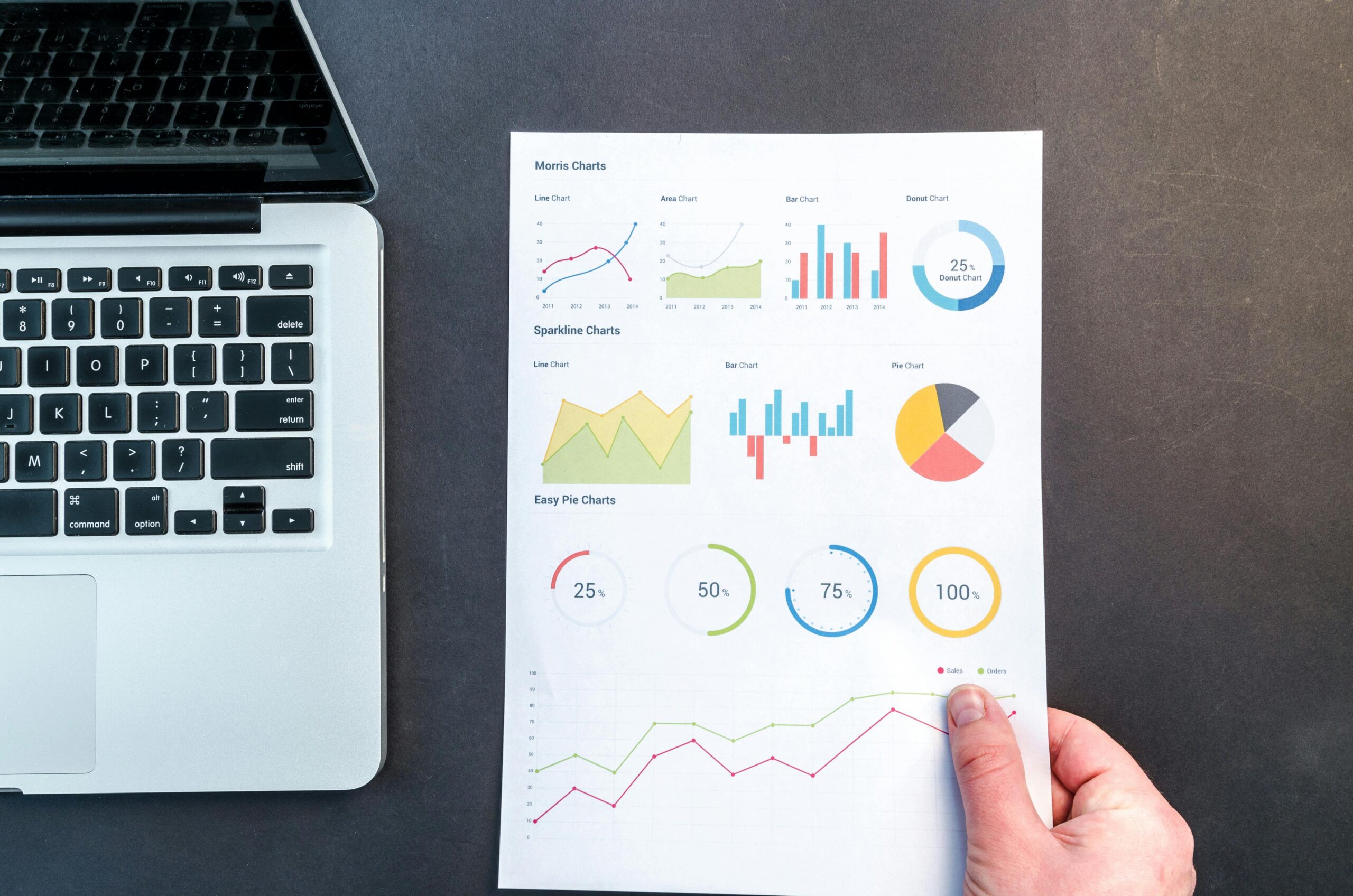Table of Contents
ToggleIntroduction
In the ever-evolving landscape of digital marketing, staying ahead of the curve is imperative for businesses striving to thrive in the competitive online sphere. Enter Artificial Intelligence (AI), a game-changer that has revolutionized the way marketers strategize and execute their campaigns. From enhancing customer experiences to optimizing ad targeting, AI's influence permeates every facet of digital marketing. In this comprehensive guide, we delve into the transformative impact of AI on digital marketing strategies, exploring its role in SEO, social media marketing, and beyond.
8 MIN READ
1. The Rise of AI in Digital Marketing
The integration of AI into digital marketing strategies marks a paradigm shift in the industry. With the exponential growth of data and the demand for personalized experiences, AI emerges as the catalyst for efficiency and effectiveness. Through advanced algorithms and machine learning capabilities, AI empowers marketers to analyze vast datasets, identify patterns, and derive actionable insights with unparalleled precision.
Moreover, AI-driven tools such as chatbots and virtual assistants have redefined customer interactions, offering real-time support and personalized recommendations.
Here are a few Ai Tools that have Changed the Digital World
- Chat GPT
- Meta AI
- Quill Bot
- Midjourney
- Canva Ai
As businesses embrace AI-powered automation, they streamline workflows, optimize resource allocation, and drive sustainable growth in the digital realm.
2. Enhancing SEO with AI

SEO remains a cornerstone of digital marketing, and AI has emerged as a formidable ally in optimizing search engine rankings. AI-powered algorithms, such as Google’s RankBrain, continuously refine search results based on user behavior and intent. By leveraging AI-driven analytics, marketers gain valuable insights into keyword trends, competitor strategies, and content optimization opportunities.
Furthermore, AI-enhanced content generation tools enable marketers to produce high-quality, relevant content at scale. Natural Language Processing (NLP) algorithms facilitate the creation of engaging narratives tailored to specific audience segments, thereby enhancing organic visibility and driving traffic to websites.
3. Empowering Social Media Marketing

Social media platforms have become indispensable channels for brand engagement and audience outreach. AI empowers marketers to navigate the dynamic landscape of social media marketing with precision and agility. Through sentiment analysis and social listening tools, AI enables brands to monitor conversations, gauge audience sentiment, and tailor content strategies accordingly.
Moreover, AI-driven algorithms optimize ad targeting, ensuring that promotional content reaches the most relevant audience segments. By analyzing user behavior and preferences in real-time, AI enhances the effectiveness of social media advertising campaigns, maximizing ROI and driving conversions.
4. Personalization at Scale

The era of one-size-fits-all marketing is long gone, replaced by a paradigm of hyper-personalization driven by AI. By harnessing data insights and predictive analytics, marketers can deliver tailored experiences across multiple touchpoints, fostering deeper connections with their audience. From personalized email campaigns to dynamic website content, AI enables marketers to deliver the right message to the right person at the right time.
Furthermore, AI-powered recommendation engines enhance cross-selling and upselling opportunities, driving revenue growth and customer loyalty. Through continuous learning and adaptation, AI algorithms refine their recommendations, ensuring relevance and effectiveness in an ever-evolving market landscape.
5. Predictive Analytics

Predictive analytics, powered by AI, empowers marketers to anticipate trends, forecast consumer behavior, and make data-driven decisions with confidence. By analyzing historical data and identifying patterns, AI algorithms predict future outcomes, enabling marketers to allocate resources strategically and optimize campaign performance.
Moreover, predictive analytics enables proactive customer engagement, allowing marketers to anticipate needs and preferences before they arise. By leveraging AI-driven insights, businesses can tailor marketing strategies to align with evolving consumer trends, gaining a competitive edge in the dynamic digital marketplace.
6. AI and Marketing Automation

Marketing automation platforms equipped with AI capabilities streamline repetitive tasks, optimize workflows, and enhance campaign efficiency. From lead nurturing to customer segmentation, AI-driven automation simplifies complex processes and enables marketers to focus on high-value initiatives. By automating routine tasks such as email scheduling, social media posting, and ad optimization, AI frees up valuable time and resources, allowing marketers to drive innovation and creativity.
Furthermore, AI-powered automation fosters agility and responsiveness, enabling marketers to adapt quickly to changing market dynamics and consumer preferences. By leveraging real-time data and predictive analytics, businesses can deploy targeted campaigns with precision, maximizing engagement and ROI.
7. Ethical Considerations in AI-Powered Marketing

As AI continues to proliferate in the digital marketing landscape, ethical considerations become increasingly pertinent. Marketers must ensure transparency and accountability in AI-driven decision-making processes, safeguarding consumer privacy and data integrity. Moreover, mitigating algorithmic bias and ensuring fairness in AI models are essential to fostering trust and credibility with consumers.
Furthermore, marketers must remain vigilant against potential misuse of AI technologies, such as algorithmic manipulation and misinformation dissemination. By adhering to ethical guidelines and industry best practices, businesses can harness the power of AI responsibly, driving sustainable growth and fostering positive brand perceptions.
8. The Future of AI in Digital Marketing

Predictive analytics, powered by AI, empowers marketers to anticipate trends, forecast consumer behavior, and make data-driven decisions with confidence. By analyzing historical data and identifying patterns, AI algorithms predict future outcomes, enabling marketers to allocate resources strategically and optimize campaign performance.
Moreover, predictive analytics enables proactive customer engagement, allowing marketers to anticipate needs and preferences before they arise. By leveraging AI-driven insights, businesses can tailor marketing strategies to align with evolving consumer trends, gaining a competitive edge in the dynamic digital marketplace.
9. Conclusion

In conclusion, Artificial Intelligence represents a transformative force in the realm of digital marketing, empowering businesses to unlock new opportunities for growth and innovation. From enhancing SEO strategies to revolutionizing social media marketing, AI-driven insights and automation redefine the way marketers engage with their audience. By harnessing the power of AI responsibly and ethically, businesses can navigate the complexities of the digital landscape with confidence, driving sustainable success and delivering exceptional value to their customers.






